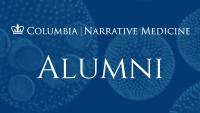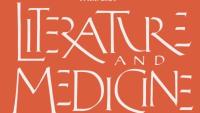Division of Narrative Medicine

Our Vision
Columbia Narrative Medicine revolutionizes health care through human connection and critical dialogue to improve health outcomes for all. Moved to action by the stories of others, we expand justice, equity, and attention to self, others, and systems of care.
Our Mission
We develop the narrative capacities of attention, representation, affiliation, and creativity by engaging literature, philosophy, other humanities, creative arts, and social and natural sciences. Through education, training, research, scholarship, and advocacy we seek to transform health care at both individual and structural levels.
More About Columbia Narrative Medicine
Narrative medicine is an international discipline at the intersection of humanities, the arts, clinical practice, and health care justice with conceptual foundations in narratology, phenomenology, and liberatory social theory. Arising at Columbia in 2001, narrative medicine has developed principles and practices that equip clinicians to better comprehend their patients’ experiences and perspectives so as to deliver equitable and effective health care. Narrative medicine also engages with writers, artists, scholars, activists, and human services professionals of all kinds to improve health care from the perspectives of patients and providers.
Working with nurses, social workers, physicians, mental health professionals, chaplains, academics, and everyone interested in person-centered, respectful health care, this discipline aims to deepen self-awareness, clinical effectiveness, collaborative skills, and creative capacities through rigorous narrative training and practices. Our commitments to health care justice underlie our writing, teaching, research, advocacy, and delivery of care.
Narrative Medicine Rounds and Workshops
There are currently no upcoming events.














